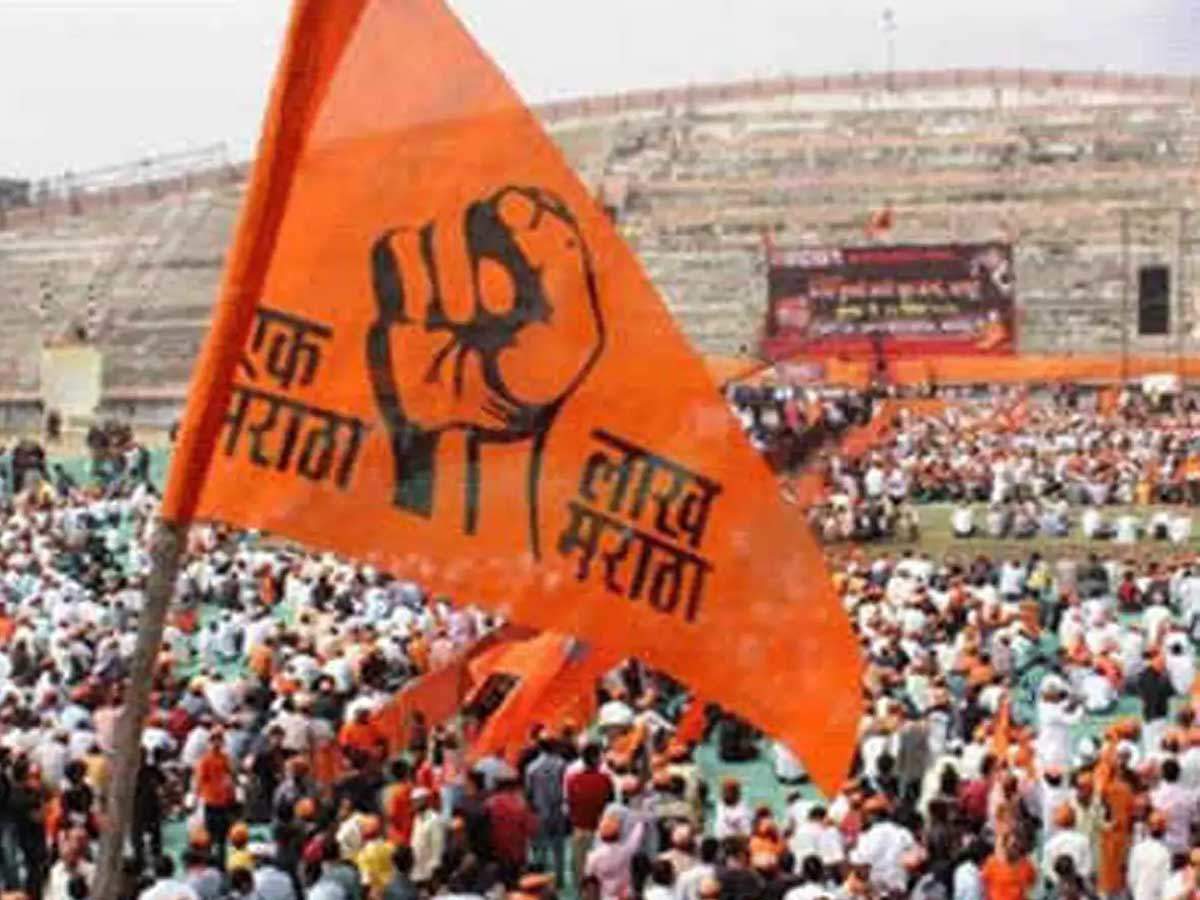


In response to the state government's implementation of 10% Maratha reservation, the National Students Union of India (NSUI) has demanded the inclusion of this reservation in the faculty recruitment process at Savitribai Phule Pune University. NSUI Secretary, Akshay Kambale, has urged the university administration to rectify the advertisement and extend the application deadline by one month to provide opportunities for economically disadvantaged Maratha candidates to become faculty members. The NSUI has threatened to stage a protest if the demands are not met by March 23. The Savitribai Phule Pune University has decided to follow all procedures for implementing the reservation before initiating the PhD admission process, with the pre-admission exams being conducted in May this year.
NSUI Demands Maratha Reservation in Savitribai Phule Pune University Faculty Recruitment
In light of the Maharashtra government's implementation of 10% reservation for Maratha candidates, the National Students Union of India (NSUI) has demanded its inclusion in the faculty recruitment process at Savitribai Phule Pune University (SPPU).
Background:
The state government announced the 10% Maratha reservation in June 2021. This decision was met with protests and legal challenges from various groups, including the OBC (Other Backward Classes) community.
NSUI's Demands:
NSUI Secretary Akshay Kambale has urged the university administration to amend the recruitment advertisement to include the Maratha reservation. He also requested a one-month extension of the application deadline to ensure fair opportunities for economically disadvantaged Maratha candidates.
University's Response:
SPPU has expressed its commitment to implementing the reservation policy. However, it has stated that it will follow all necessary procedures before initiating the PhD admission process. The pre-admission exams are scheduled for May 2023.
NSUI's Ultimatum:
The NSUI has threatened to stage a protest if its demands are not met by March 23. The union has called upon the university administration to address the concerns of Maratha candidates.
FAQs:
1. Why is the NSUI demanding Maratha reservation in SPPU faculty recruitment? A: To ensure equal opportunities for economically disadvantaged Maratha candidates in faculty positions.
2. What is the state government's reservation policy for Marathas? A: 10% reservation in education and government jobs.
3. When is SPPU expected to implement the Maratha reservation? A: It will be implemented before the start of the PhD admission process.
4. What is the NSUI's ultimatum? A: To stage a protest if their demands are not met by March 23.
5. What are SPPU's plans for implementing the reservation? A: To follow all necessary procedures and conduct pre-admission exams in May 2023.

The Pasighat police in East Siang district, Arunachal Pradesh have arrested the 33-year-old boys' hostel warden of Sanggo English School for sexually assaulting minor students. This came to light when a student was hospitalized for urogenital complications. The incident has sparked outrage from parents and the public, demanding strict action against the accused warden. In response, the Arunachal Pradesh State Human Rights Commission (APSHRC) has taken suo motu cognisance and ordered for a detailed report on the investigation, victim protection, and school management.

Actress Siddiqa Begum, daughter and legal heir of Shah Bano, has served a legal notice on the makers of the upcoming Bollywood film 'Haq'. The notice states that the film's unauthorized depiction of the personal life of Shah Bano without the consent of her legal heirs is a violation of their rights. 'Haq' is based on the landmark 1985 Supreme Court case that granted maintenance to Shah Bano, a Muslim woman, from her divorced husband.

After four years, the 'Darbar Move' tradition in Jammu and Kashmir has been restored, fulfilling the promise of the government and bringing a boost to the economy. National Conference chief Farooq Abdullah expressed happiness, noting that those who sought to separate Jammu and Srinagar have failed. Chief Minister Omar Abdullah received a warm reception and inspected the secretariat premises after the ceremony, as security in the region was heightened for the occasion.

Delhi Legislative Assembly Speaker Vijender Gupta praised Swami Dayanand Saraswati as not just a saint and reformer, but also a pivotal figure in India's freedom struggle. Speaking at the International Arya Samaj Conference, Gupta highlighted how Swami Dayanand's teachings sparked a revolution that led to the nation's independence. The event was attended by esteemed guests including Gujarat Governor Acharya Devvrat and top officials from the Arya Samaj community, all paying tribute to the enduring impact and legacy of Swami Dayanand Saraswati.

The Metro Railway Kolkata has announced a major schedule expansion for its Yellow Line, which runs between Noapara and Jai Hind Bimanbandar (Airport) in Kolkata. Starting from 3 November, weekday operations will increase to 120 services with extended operating hours, providing greater convenience and accessibility to commuters. Weekend travellers will also see a significant frequency upgrade, making travel on Saturdays and Sundays hassle-free. This move is expected to improve the overall public transportation system in the city and benefit the commuters.

Despite some reassurances that online verticals focused on diversity will continue, NBC News has announced a round of layoffs that will impact about 150 employees, or 2% of their workforce. The cuts are said to be a result of cost-cutting measures in preparation for the split of Comcast's cable networks into Versant. This move signifies a shift in priorities for NBC management, prioritizing corporate profits over hard-working members, according to Susan DeCarava, president of The NewsGuild of New York. This change also means that MSNBC will no longer lean on NBC News for newsgathering, with those ties expected to be severed next week.

The Kasibugga Venkateswara Temple in Srikakulam district was the site of a heart-wrenching stampede, causing multiple fatalities and affecting the community deeply. Chief Minister N. Chandrababu Naidu has expressed his sorrow over the unfortunate incident, as well as directing officials to ensure that those injured receive the best medical treatment possible. As local officials and public representatives are called to oversee relief operations, swift action is required to aid those affected and manage the situation effectively.

Indian Prime Minister Narendra Modi inaugurated the Shanti Shikhar Academy for Peaceful World in Raipur, praising the Brahma Kumaris organization for bridging India's ancient wisdom with the world's search for harmony. He credited the group's selfless service and spiritual discipline for their efforts towards universal peace. He positioned the Brahma Kumaris as protectors of India's soul and highlighted India's proactive role in addressing global crises such as disaster relief and environmental threats.

In an act of solidarity and protest, millions of Muslims in India used their Friday prayers to denounce the recent killings that took place in Pahalgam. The news comes amid growing tensions between the Muslim community and the Indian government. Many are viewing this as a sign of unity and determination from the Muslim population in India.

The state of Karnataka, or Kannada Rajyotsava, marked its 69th anniversary with a grand ceremony organized by the district administration in Mangaluru. District in-charge minister Dinesh Gundu Rao paid tribute to the leaders and writers who fought for a unified Kannada state and presented awards to 80 outstanding individuals and organizations. In his address, the minister highlighted the rich cultural and historical heritage of Karnataka and called for a sense of pride among its citizens.